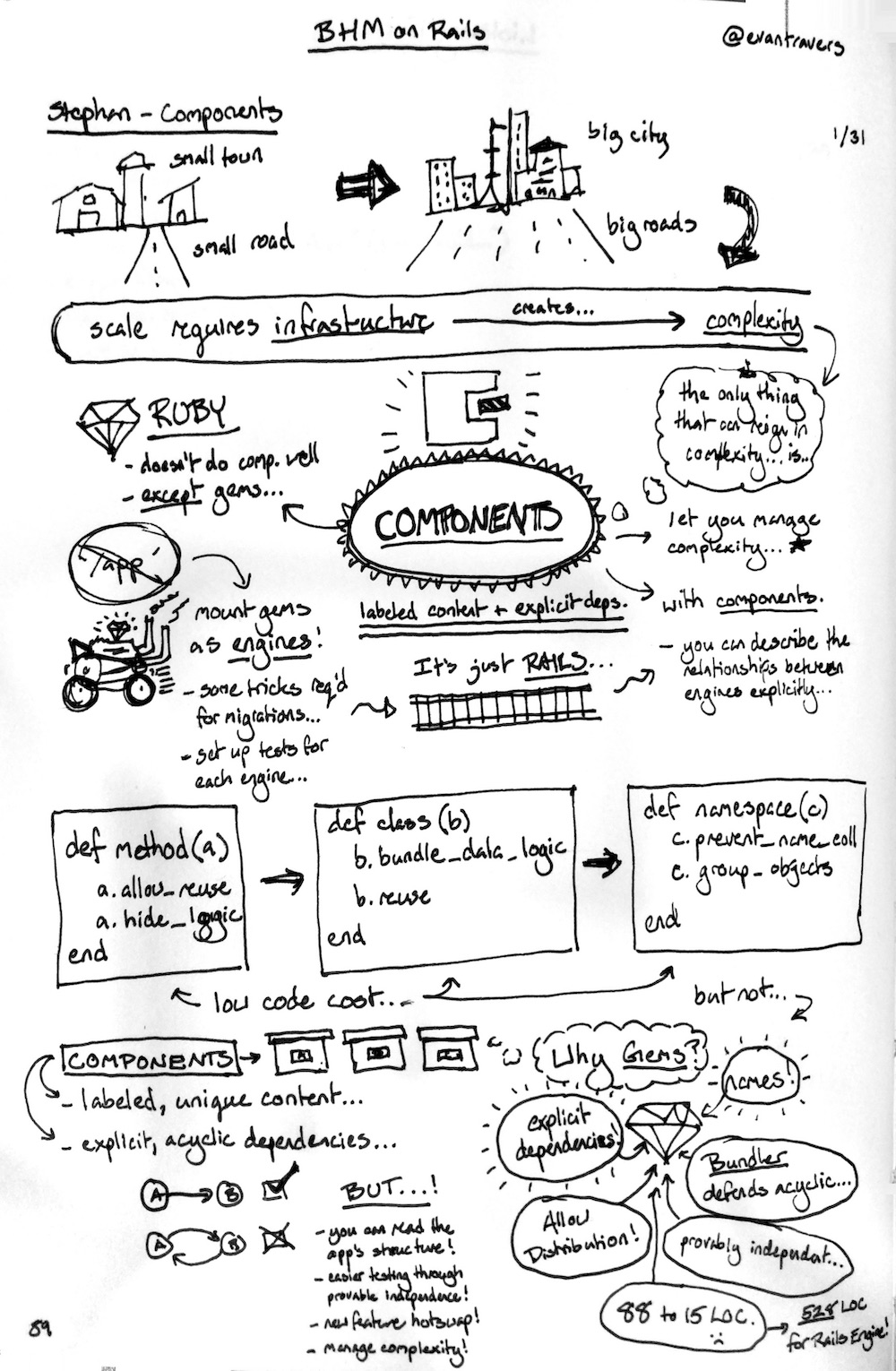Let's start with how I use the two terms:
When I say components, I mean individually tested, isolated, explicitly dependent, and composed software parts that are combined to make the functionality of an application1. In practical terms, components in various languages are Ruby gems, Java Maven projects, or Node modules.
With packages, I am referring to more-or-less individually tested, more-or-less isolated, and composed software that are combined to make the functionality of an application. Packages don't widely exist and they have been introduced to Ruby only a year ago when Shopify open-sourced packwerk2.
I pushed for components for a long time: Hear me when I say: Stop. Use packages.
Separating code into components (or services) is a big decision
In order to make components - the same goes for service creation or extraction btw - some big decisions come first: Which functionality should live together? What should its API be? It also comes with a lot of work: Set up a separate test suite. Set up and maintain the new CI/CD pipeline. These decisions and this work is risky: what if we get it wrong?
Software engineers wouldn't put this work in if it weren't worth it though. So why do we do it? To manage complexity. To ensure that the incidental complexity of our application is not too much higher than the essential complexity of our domain.
Don't look back
With packages, you replace the "one big decision" of components with many, many, much smaller, easier, and far less consequential decisions around packages3. That is why packages are a game changer: we can get to the same destination, but we can get there with waaaaay less risk along the way.
#gradual modularization #components #packagesSocial
Mention this post from your site:

